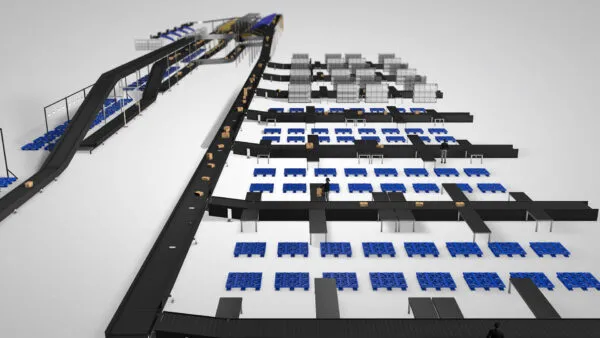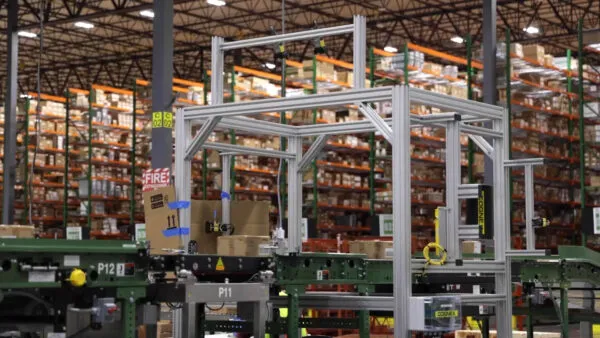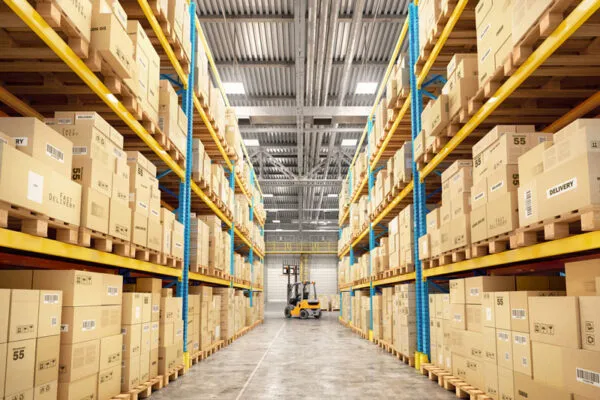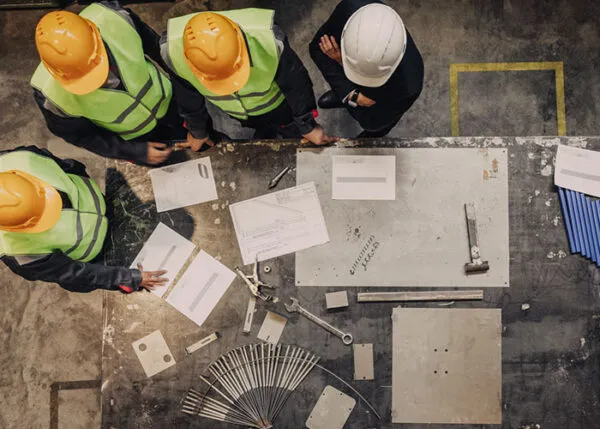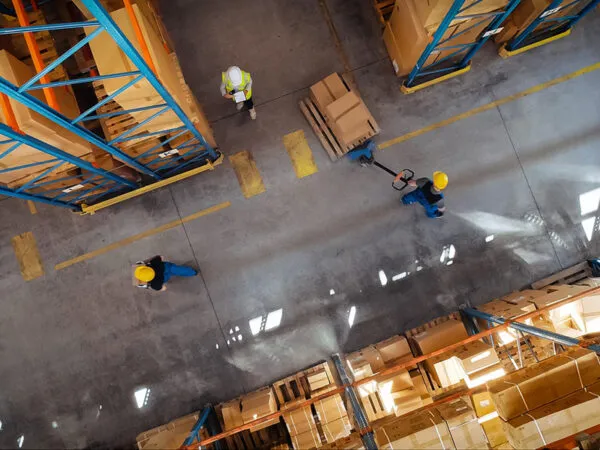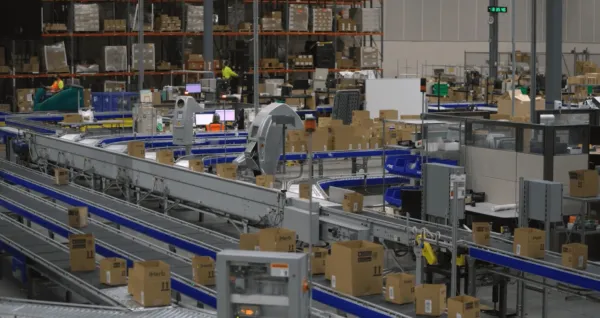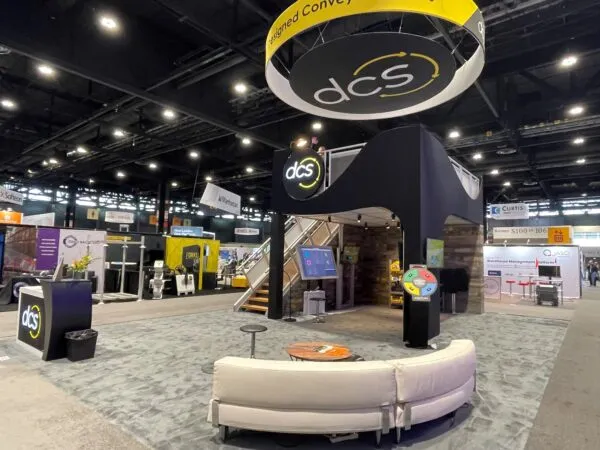The release of ChatGPT in late 2022 pushed Artificial Intelligence (AI) into mainstream conversations, including those DCS has with its customers.
What makes this technology such a game changer? Previously, powerful AI models were only available to tech giants like Google, Amazon, and Netflix to drive expanded capabilities within their proprietary software. AI was out of reach for nearly anyone else who wanted to use it to assist with everyday tasks or to incorporate into products.
Now, thanks to ChatGPT’s democratization of the technology — and many other pandemic-accelerated advances in AI and machine learning (ML) — companies like DCS are increasingly leveraging its value. This allows expanded use cases for AI and ML across many new industries, including warehouse management software used in distribution and order fulfillment applications.
That’s not to say software developers in the supply chain are just now seeing the potential for these technologies. Rather, thanks to increased public awareness of ChatGPT, there has been a huge uptick in interest this year in implementing these solutions in warehousing applications. ML and other forms of AI are no longer a far-off roadmap item. Instead, they are being integrated into the products and solutions that we offer our customers, and into the methodologies behind how we develop software applications.
Defining AI, ML, and Related Solutions
For context, I want to quickly define these terms.
Artificial Intelligence (AI) uses computers to perform tasks that typically require human intelligence. A broad field, AI applies computer processing to large datasets to enable problem-solving. Some define AI as a machine’s ability to simulate human intelligence through programming to think and act like humans.
Generative AI, such as ChatGPT, uses algorithms to produce different types of content based on the patterns and structures it identifies in existing data. This includes text, images, audio, code, data, renderings, or other forms of media.
Machine Learning (ML) falls under the umbrella of AI. It utilizes algorithms that learn from data analysis. Detecting patterns by processing information and experiences — as opposed to being programming-driven — informs its ability to make predictions or recommendations. There are several different types of ML:
- Supervised Learning takes a large data set containing labels (correct answers) and uses that information to train a model to make predictions.
- Unsupervised Learning is also used to train a model, but with no labels. It relies instead on clustering or dimensions reduction to arrive at its predictions.
- Reinforced Learning takes the decision-making process and introduces a reward system to continuously drive toward an optimal solution.
Applying AI and ML in Supply Chain
In warehousing and supply chain, ML offers benefits to predictive maintenance, inventory slotting, autonomous robot navigation, box size selection, and labor planning — to name a few.
Generative AI is also showing up in more and more products as a co-pilot assistant. Microsoft for one is integrating GPT technology from ChatGPT’s developer, OpenAI, into all of its Office software products and its Bing search engine. Further, many software development vendors (including Microsoft) are integrating GPT into their programming and coding tools.
From a warehouse software developer’s perspective, since the world first began Googling, programmers have been searching for code examples to copy-paste. This saves time on coding mundane details of syntax; instead, it allows developers to focus on more challenging programming problems.
Take this one step further with GPT, developers are now asking it to generate entire services in their language of choice. From my own personal, first-hand experience with this technology as it currently stands, the resulting code is not great. However, it is clear to see that it will continue to evolve and quickly improve.
Some would argue that using GPT for coding any software — including that used in warehousing and supply chain — is cheating. Others speculate that Generative AI will ultimately replace all human programmers. Personally, I believe this tool represents a leap forward because it multiplies human productivity, possibly to a scale unparalleled since the industrial revolution or the mainstream of the personal computer.
AI and ML Aren’t a Silver Bullet
As is the case in engineering or mechanics, in software engineering it’s important to pick the right tool for the job. Like the adage, “if you only have a hammer everything looks like a nail,” ML is a powerful hammer that can be used in a variety of applications. However, its predictions are only as accurate as the amount and quality of the source data, processing power, and computation time will allow.
What about situations that lack an abundance of these resources? Those are problems that can continue to be solved with other tried-and-true methods. For example, mathematical optimization or other heuristics are still perfectly valid methods that require far fewer resources to reach solutions. AI and ML are not a silver bullet to solve all problems.
The Future Holds Great Potential
Ultimately, recent advances in AI represent a potential paradigm shift in productivity — for software developers and software users alike. But, as with all major shifts that have come before, there will be an upside and a downside. Managing the risks will be of both higher importance and greater consequence than ever before.
ML is a shiny new tool in our software engineering toolbox. Solutions providers and supply chain operators need to keep an open mind and approach every solution with a fresh perspective. However, it’s also important to avoid the hype cycle and not assume that ML is always (or will always provide) the best answer.
As a software engineer, I am very excited about the momentum that AI and ML have right now in our industry. I’m eager to see what products and services we come up with in the next few years to better serve our supply chain and material handling clients, and to help them meet their customers’ needs more effectively. Exciting times, indeed!
Want to geek out on more software speak? Connect with us; DCS’ software team is happy to schedule a virtual consultation to discuss how our solutions can help your operation.
Author: Brian Curran, VP of Software, briancu@designedconveyor.com
